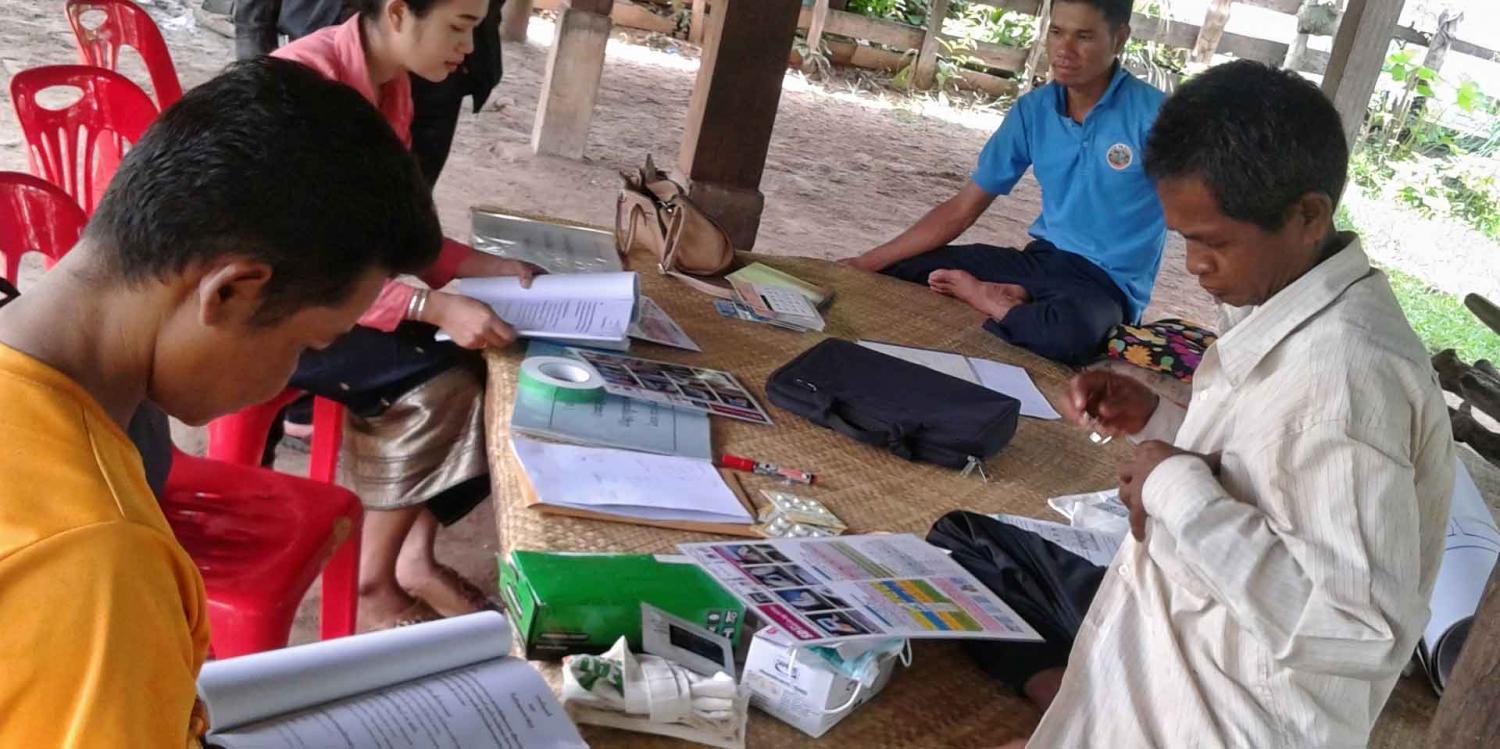Douangpi works in the Khamchalearn village malaria post operated by Health Poverty Action (HPA) in Champasak Province in southern Laos, where malaria prevalence is still high and many migrant workers and other people make their living from the forests.
“The number of malaria cases in southern Laos is still high because people continue to access the forest areas. They do this because the forest is the source of their livelihood. It is one of the contributing factors for malaria cases”, explained Douangpi.
Mobile migrant populations (MMPs) and forest-goers are at higher risk of malaria due to the mobile nature of their work and their habit of sleeping overnight in the forests, often without mosquito nets. Because they are vulnerable, they need to have easy access to local, comprehensive health care services including malaria testing and treatment services tailored to their specific needs. However, it is not always easy to gain the trust of forest-goers and MMPs, who fear that speaking with people from organizations will jeopardize their work opportunities and involve the authorities. In the past this was often true.
Nonetheless, with his extensive years of experience in malaria prevention and control, his selfless dedication, professionalism and persistent drive, Douangpi’s success in overcoming these challenges to win the trust of the marginalized forest-goers community is inspiring. “I have been persistent and the forest-goers know me well now. They trust me because I have worked with them for so long. It is important to maintain these relationships so that they feel comfortable seeking my help. I have to be very active when I track and treat malaria. I allow people to have 24-hour access to the malaria post and that way I am aware of any village malaria outbreaks and can address the problem as soon as it occurs”, continued Douangpi.
“The situation is improving and it is not as difficult as it was before to build strong relationships with forest-goers and MMPs. This is because these communities are receiving more information about malaria and are becoming increasingly aware of their health and wellbeing and the issue that malaria presents”, he concluded.
HPA has been implementing its RAI malaria grant since 2014. The malaria posts that HPA has established in 48 villages in Champasak Province are the first of their kind in Laos and address the issues around forest-goers and MMPs. Although malaria elimination is still a work in progress, Douangpi’s optimism reflects the positive change happening in Laos. Access to local malaria posts has provided marginalized groups with better healthcare opportunities.



